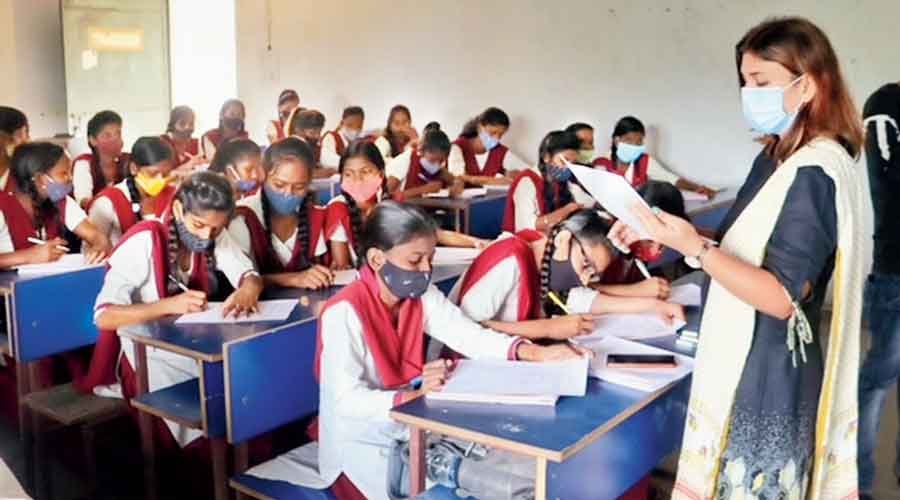What began as a project has now become a passion for the IIT (Indian School of Mines) Dhanbad faculty in providing health and hygiene lessons to underprivileged students in state-owned schools.
Rashmi Singh, a faculty with the department of management studies at the Indian Institute of Technology (ISM) began as the principal investigator for the National Council for Science and Technology Communication (NCST, a wing of the department of science and technology under Union ministry of science and technology) funded project to understand the impact of Covid pandemic on education and well-being of state-owned high school students in Jharkhand.
However, in a span of over a week, the faculty has developed a passion for making poor students in government schools aware of health, sanitation and hygiene practices.
“We were selected for the NCSTC funded aimed at understanding the impact of Covid pandemic on education and overall well-being of state-owned school students. We started through a series of workshops named ‘Jagarookta’ (awareness) from October 25 and aimed at winding up the project by November last.
“However, the curiosity of the students from an underprivileged background and their eagerness to get information despite huge hurdles including the lack of science faculties in high schools has touched me. I am going to continue sharing my experiences with the students squeezing my time at least once a week,” said Rashmi.
Significantly, through the workshop, Rashmi along with her five-member team are trying to motivate school students to follow a healthy lifestyle and give emphasis on science and mental health.
“These workshops are a part of the ‘year of awareness on science and health program by the department of science and technology, Government of India.
“The workshops consist of sessions by experts across various fields — doctors, psychologists, academicians, professionals in the area of health care provision and research. At the end of the project we would have to submit our report to the NCSTC,” said Rashmi.
Through this initiative, students and teachers in government schools are introduced to interventions in the form of hygiene kits and informational materials which will help inculcate better hygiene and healthy lifestyle practices such as frequent hand washing, general cleanliness and proper sanitation habits.
“I was surprised that in most of the high schools there is a shortage of science faculties. Only 10 per cent of the students in such school had access to digital education and yet they were so curious and motivated to know about health and hygiene. I have developed a special connection with such children and would continue to educate them at least once a week squeezing out time from my academic schedule,” said the faculty.
So far they have touched 1,500 students from six high schools in Dhanbad devoting at least five hours in each of the school.










